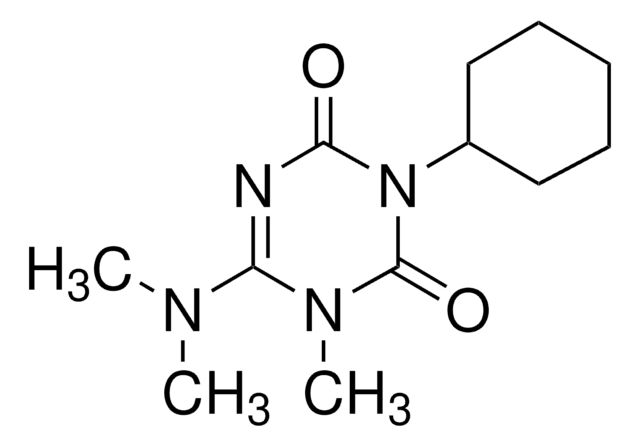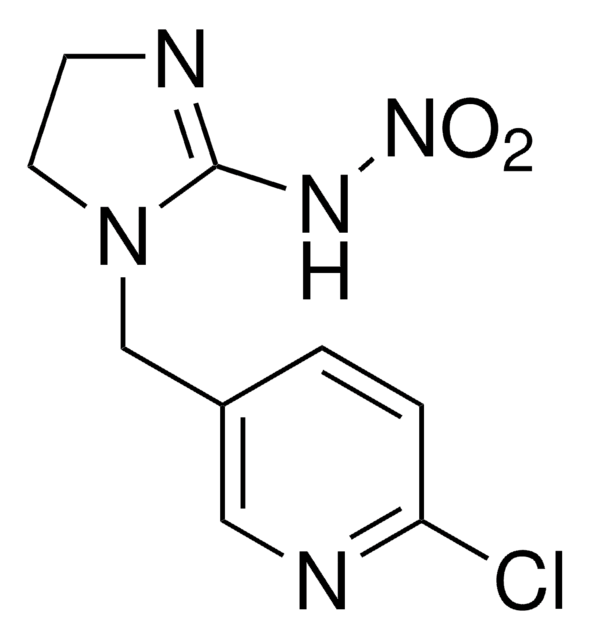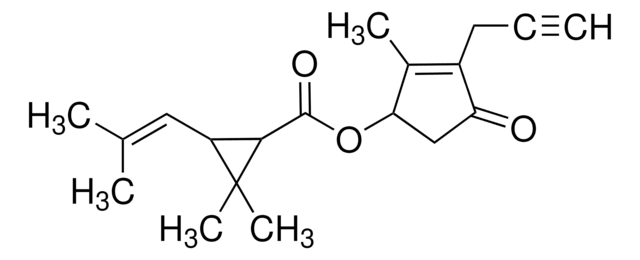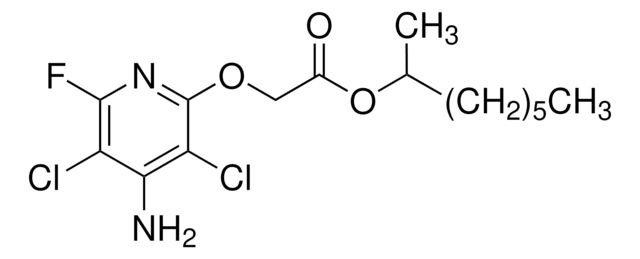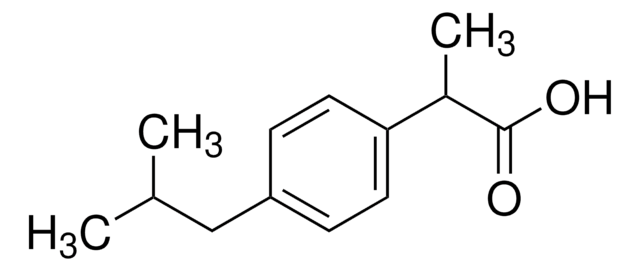About This Item
Recommended Products
grade
analytical standard
Quality Level
product line
PESTANAL®
shelf life
limited shelf life, expiry date on the label
technique(s)
HPLC: suitable
gas chromatography (GC): suitable
application(s)
agriculture
environmental
format
neat
SMILES string
CN(C)C1=NC(=O)N(C2CCCCC2)C(=O)N1C
InChI
1S/C12H20N4O2/c1-14(2)10-13-11(17)16(12(18)15(10)3)9-7-5-4-6-8-9/h9H,4-8H2,1-3H3
InChI key
CAWXEEYDBZRFPE-UHFFFAOYSA-N
Looking for similar products? Visit Product Comparison Guide
General description
Application
Legal Information
Not finding the right product?
Try our Product Selector Tool.
Signal Word
Warning
Hazard Statements
Precautionary Statements
Hazard Classifications
Acute Tox. 4 Inhalation - Acute Tox. 4 Oral - Aquatic Acute 1 - Aquatic Chronic 1 - Eye Irrit. 2
Storage Class Code
11 - Combustible Solids
WGK
WGK 3
Flash Point(F)
Not applicable
Flash Point(C)
Not applicable
Personal Protective Equipment
Choose from one of the most recent versions:
Certificates of Analysis (COA)
Don't see the Right Version?
If you require a particular version, you can look up a specific certificate by the Lot or Batch number.
Already Own This Product?
Find documentation for the products that you have recently purchased in the Document Library.
Protocols
Separation of Atrazine-desethyl; Metoxuron; Hexazinone; Simazine; Cyanazine; Methabenzthiazuron; Atrazine; Monolinuron; Diuron; Isoproturon; Metobromuron; Metazachlor; Sebuthylazin; Linuron; Metolachlor
Our team of scientists has experience in all areas of research including Life Science, Material Science, Chemical Synthesis, Chromatography, Analytical and many others.
Contact Technical Service